May 28, 2025 | 10:22 GMT +7
May 28, 2025 | 10:22 GMT +7
Hotline: 0913.378.918
May 28, 2025 | 10:22 GMT +7
Hotline: 0913.378.918
"White pollution" refers to environmental pollution caused by plastic waste, particularly plastic bags and single-use plastic products.
According to a report by the United Nations Environment Programme (UNEP), approximately 430 million tons of plastic are produced globally each year, with more than two-thirds of this amount being single-use products. These products quickly become waste, polluting oceans and severely impacting ecosystems and human health.
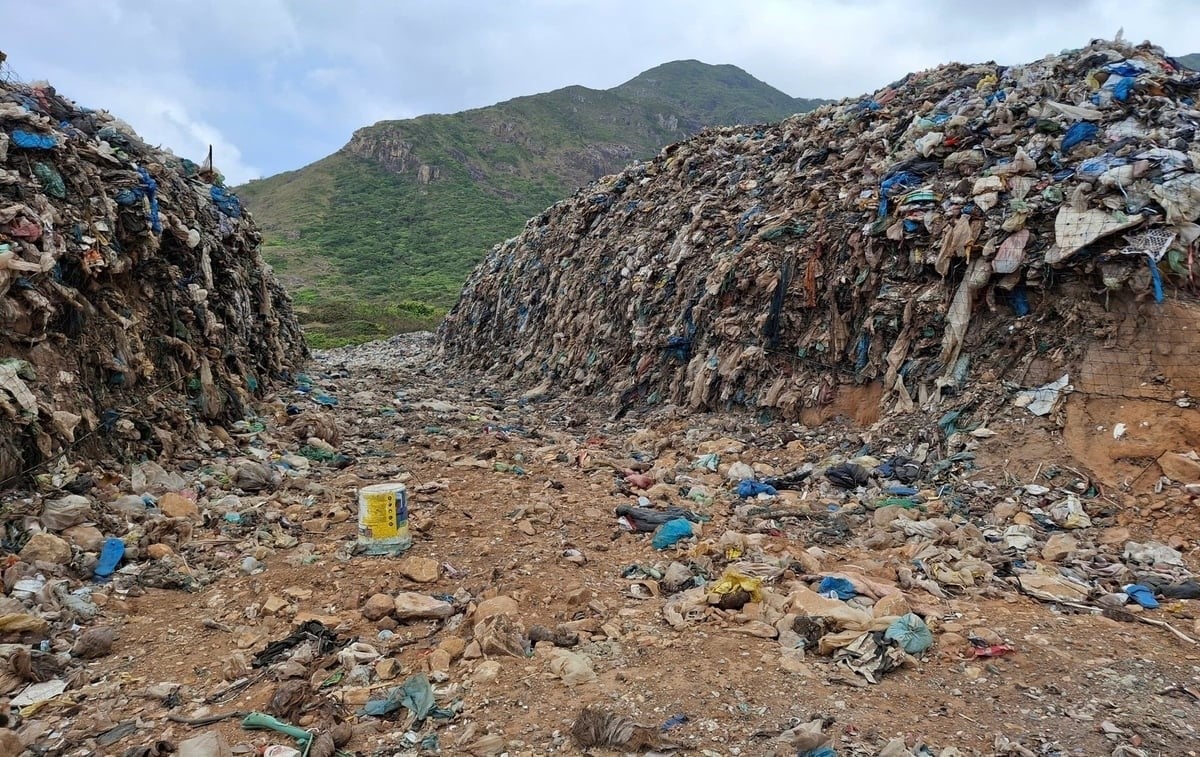
Plastic waste poses a serious threat to the environment, ecosystems, and human health. Photo: Yen Thi.
Plastic has become a major environmental hazard due to its massive volume, persistence in the environment, and ability to travel long distances. It can take hundreds, even thousands of years for thin, lightweight plastic bags to decompose. Scientific studies have indicated that microplastics and nanoplastics can penetrate human blood, liver, kidneys, and brain. Moreover, plastic production is responsible for over 3% of global greenhouse gas emissions, thereby contributing significantly to the climate crisis.
All these factors make plastic pollution a worsening driver of the planet's "triple crisis": climate change, biodiversity loss, and environmental pollution. Faced with this situation, United Nations Secretary-General António Guterres issued a warning: "For too long, we have kicked the plastic bottle down the road!"
In Vietnam, it is estimated that about 1.8 million tons of plastic waste are generated annually. However, only around 27% is recycled. The remainder is largely landfilled or burned, causing resource waste and posing many environmental risks, especially in coastal and marine areas.
According to estimates by the International Finance Corporation (IFC) and the World Bank, Vietnam loses nearly USD 3 billion each year due to the failure to recycle domestic plastic waste.
Six years ago, on the occasion of World Environment Day (June 5, 2019), the Prime Minister of Vietnam launched a nationwide campaign against plastic waste with the message "Every household limits plastic waste, every citizen combats plastic pollution, and society moves towards saying no to plastic waste."
Responding to this call from the head of the Government, a wave of "Say no to plastic waste" has been widely implemented from central to local levels and from policy formulation to concrete actions.
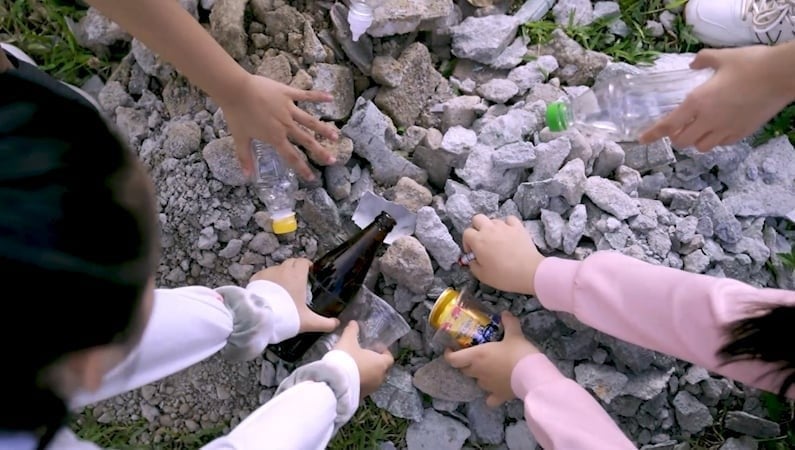
The movement "Say no to plastic waste" has been widely implemented from central to local levels, from policy formulation to concrete actions. Photo: Yen Thi.
With numerous new breakthrough points, the Law on Environmental Protection 2020 has for the first time stipulated the requirements for classifying domestic solid waste, recycling, and reuse. It also institutionalized the concept of a circular economy through the law and its guiding decrees.
Notably, under the Law on Environmental Protection 2020, Vietnam became the first country in Southeast Asia to implement the Extended Producer Responsibility (EPR) policy, a crucial legal tool for establishing a recycling industry in the country, helping to limit plastic consumption and extend the life cycle of plastics.
In practice, the awareness of harmful impacts of single-use plastic products has risen substantially and is now reflected in concrete actions. There have been urban plastic reduction models in Ha Tinh, Quang Binh, Thua Thien Hue, Da Nang, Quang Nam, Phu Yen, Ba Ria – Vung Tau, Long An, Kien Giang, and Quang Tri.
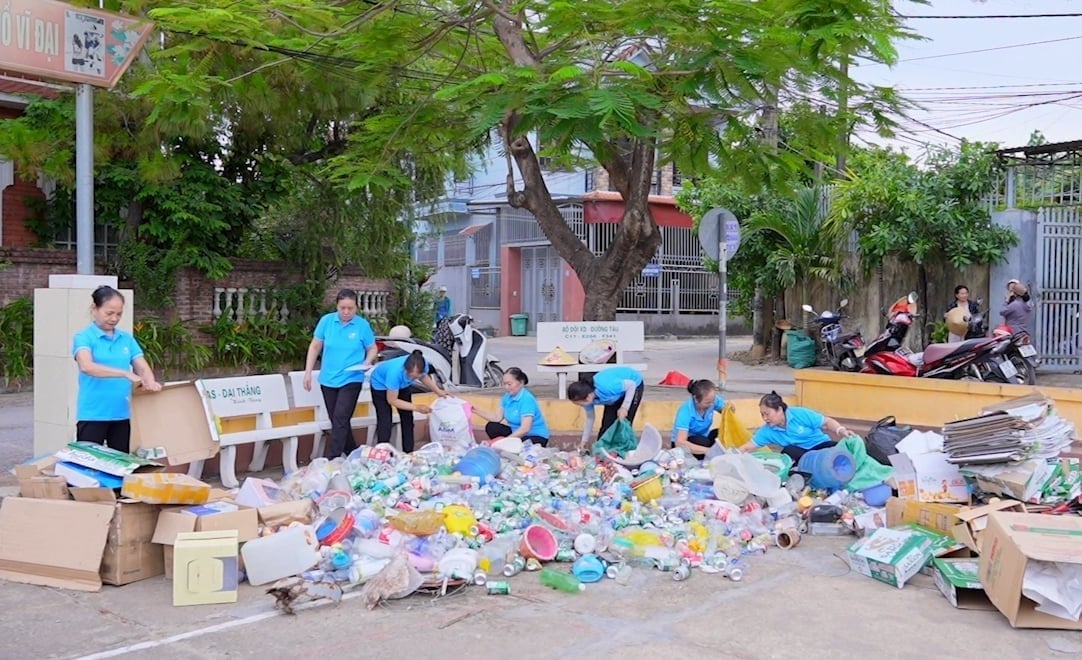
Many plastic waste reduction models have been implemented. Photo: Yen Thi.
A network of islands, including Co To, Bach Long Vy, Cu Lao Cham, Con Dao, and Phu Quoc, has been linked together under the banner of "Say No to Plastic Waste." Plastic-free schools have been established, traditional markets have transitioned from plastic bags to paper baskets, supermarkets have switched to biodegradable bags instead of single-use plastic ones, and shops have adopted paper cups and straws. Recycling alliances have been formed, and manufacturers have self-innovated their technologies. These signs reflect the ongoing positive results of Vietnam’s efforts to combat plastic waste over recent years.
However, the threat posed by plastic waste remains persistent, exacerbated by urbanization, population growth, and especially the development of e-commerce. The significant impacts of plastic waste have driven countries worldwide toward a Global Plastics Treaty starting in 2022.
Historically, before the international community adopted Resolution 514, which served as a basis for global negotiations for a Global Plastics Treaty, Vietnam, along with Germany, Canada, and Ecuador, organized a Ministerial Conference on plastic waste pollution.
At this conference, Vietnam and these three countries issued a ministerial-level declaration in support of negotiations for a Global Plastics Treaty. Consequently, Vietnam is recognized as one of the pioneering nations initiating global plastics treaty negotiations.
Following Resolution 514, Vietnam has proactively engaged with approximately 200 countries through five rounds of negotiations under the Intergovernmental Negotiating Committee (INC) to develop a Global Plastics Treaty. Once adopted, this treaty is expected to have far-reaching impacts on all economic and social sectors in Vietnam and worldwide, potentially creating a revolution in the plastic economy, from product design and production to consumption, disposal, and recycling.
Although the ambition to conclude negotiations by the end of 2024 has not yet been realized, the opportunity for countries to reach a consensus on the Global Plastics Treaty remains open. Countries are expected to continue seeking a common voice in 2025 during the upcoming rounds of negotiations.
The problem for Vietnam is what preparations are needed and how the country will adapt if a Global Plastics Treaty, comparable in impact and responsibility to the Climate Change Agreement, is adopted.
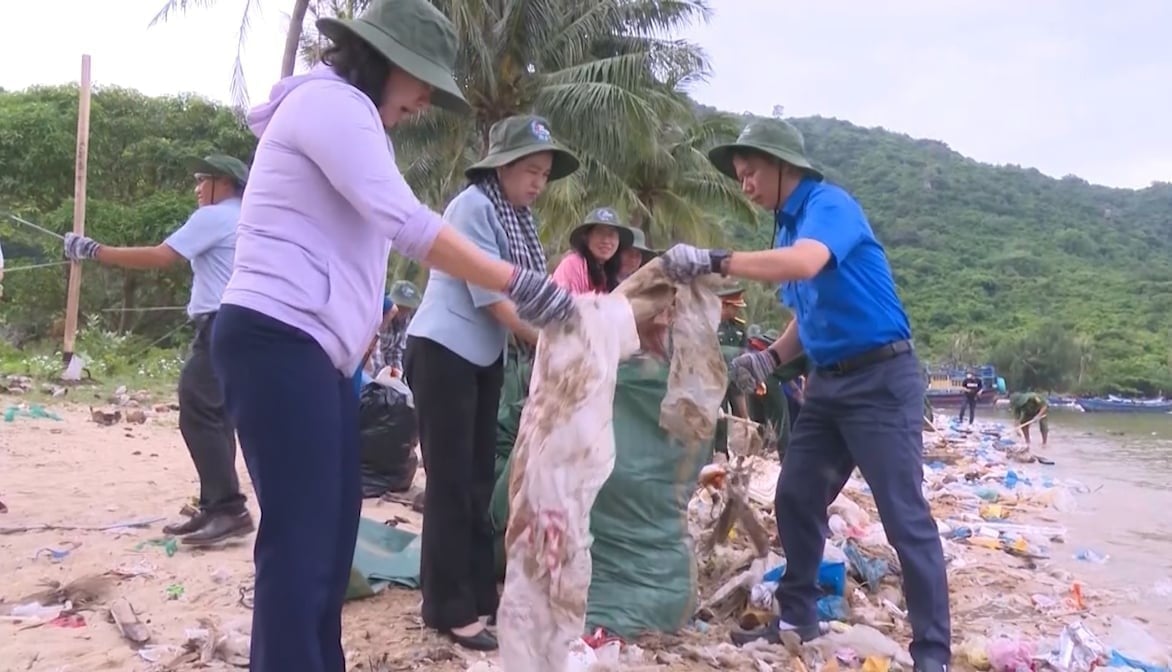
Addressing "white pollution" is not the responsibility of any single country, organization, or community. Photo: Yen Thi.
According to experts, as a developing country, Vietnam needs time to adapt to future regulations and standards. At the same time, the country also needs to calculate alternatives to single-use plastics, ensuring both technological and economic feasibility. It is also necessary to invest more in infrastructure for the treatment of plastic waste to ensure they do not aggravate environmental pollution.
Enterprises must proactively transform their production models toward greener, more sustainable practices and seize the opportunity to engage in the circular economy that the Government is striving to build. Meanwhile, the public should raise awareness and genuinely change behaviors for a more sustainable future. Clearly, addressing "white pollution" is not the responsibility of any single country, organization, or community.
As Minister of Agriculture and Environment Do Duc Duy remarked while assessing the "Reducing Ocean Plastic Waste in Vietnam" project, "Successful programs and activities require strategic consensus among stakeholders, effective collaboration between the Government and international organizations, participation of businesses and local communities, and the integration of policy, technology, and communication within a unified governance framework to create a model of effective multilateral cooperation."
World Environment Day 2025, launched by the United Nations Environment Programme (UNEP), centers around the theme "Beat Plastic Pollution." This is the second time in three years (2023–2025) that this theme has been chosen, clearly demonstrating the global priority placed on plastic pollution control. The theme also reaffirms international commitment to the efficient use of resources, biodiversity conservation, enhanced resilience, innovation promotion, and strengthened regional and global cooperation toward a circular economy and sustainable development.
In response to World Environment Day (June 5) and the Action Month for the Environment 2025, the Ministry of Agriculture and Environment has assigned the Vietnam Agriculture and Nature Newspaper to take the lead in coordinating with relevant agencies and units to develop plans and organize a rally in response to World Environment Day (June 5) and the Action Month for the Environment 2025, under the theme "Beat Plastic Pollution."
The rally will take place at 7:00 a.m. on June 1, 2025, at 30/10 Square in Ha Long city, Quang Ninh province.
Translated by Thu Huyen

(VAN) The WOAH guidelines provide a vital tool for risk chain analysis, covering the extraction, transportation, consumption, and handling of confiscated wildlife.
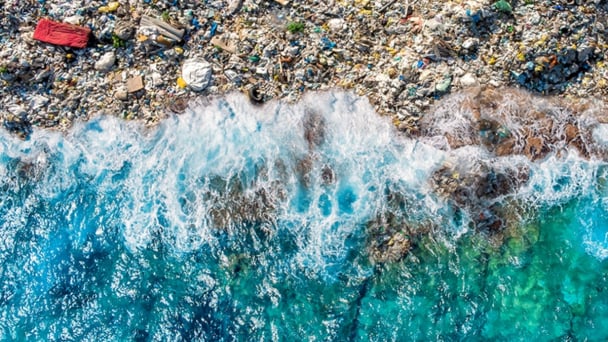
(VAN) World Environment Day 2025 is launched by the United Nations Environment Programme (UNEP) with the theme 'Beat Plastic Pollution'.
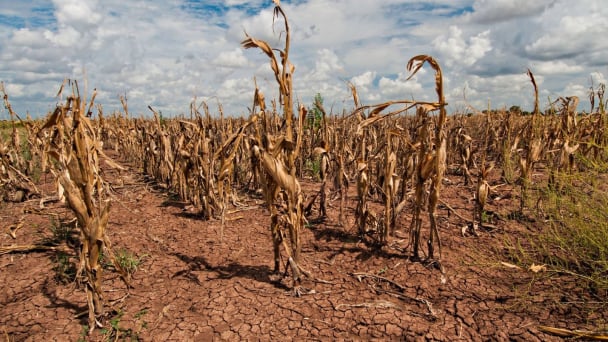
(VAN) As climate whiplash reshapes yields, experts say data-driven tools and targeted relief are critical to feed America.
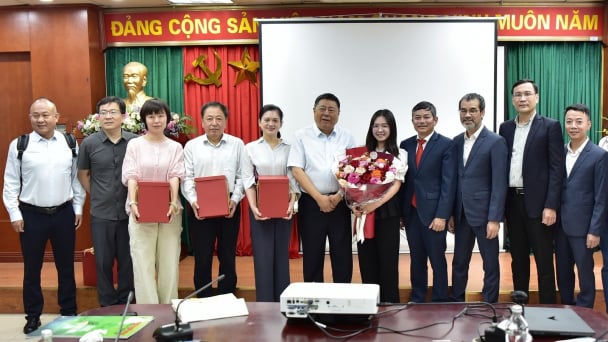
(VAN) The alignment in goals and operational direction between the Vietnam Agriculture and Nature Newspaper and Shaanxi Daily opens up promising prospects for journalism and media cooperation.
/2025/05/26/3422-3-102748_432.jpg)
(VAN) Prime Minister Pham Minh Chinh has been honored as the Distinguished ASEAN Leader at the ASEAN Leadership and Partnership Forum (ALPF) 2025 held in Malaysia, affirming Vietnam’s role and reputation.
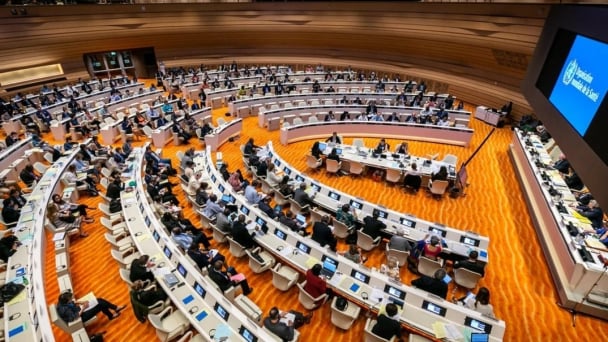
(VAN) At WHA78, with health placed at the heart of the global climate storm, Viet Nam enters a new commitment to protect communities from increasingly severe risks.